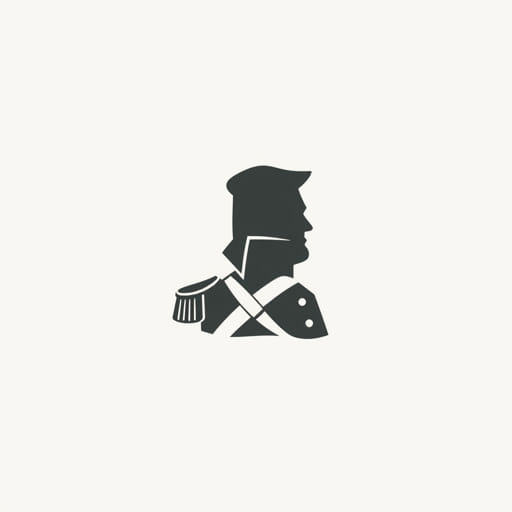In the annals of Napoleonic history, few figures have attracted as much scrutiny as Emmanuel de Grouchy during the Waterloo Campaign. His role in the outcome of the Battle of Waterloo remains a subject of enduring debate among historians and military enthusiasts. As a French marshal under Napoleon Bonaparte, Grouchy’s decisions and actions in June 1815 were pivotal to the events that ultimately ended the Emperor’s reign. Understanding Grouchy’s military background, the specific orders he received, and his movements during the Waterloo Campaign provides a deeper insight into this controversial figure.
Early Life and Military Background of Emmanuel de Grouchy
Emmanuel de Grouchy was born on October 23, 1766, into a noble family in Paris, France. He began his military career during the early stages of the French Revolution and quickly rose through the ranks due to his dedication and skill. Although his aristocratic roots caused him to be viewed with suspicion during the Revolution, he maintained his position through merit.
Grouchy served with distinction during the Revolutionary and Napoleonic Wars. He fought in numerous battles and campaigns, showcasing his ability to command troops effectively. By 1815, Napoleon regarded him highly enough to promote him to Marshal of France, a prestigious title granted to only the most capable of generals.
Grouchy’s Role in the Waterloo Campaign
During the Waterloo Campaign in June 1815, Napoleon aimed to strike a decisive blow against the coalition forces threatening France. His strategy was to divide and conquer the Anglo-Allied army led by the Duke of Wellington and the Prussian army commanded by Field Marshal Blücher. Grouchy was given command of the right wing of the French Army and tasked with pursuing the retreating Prussians after the Battle of Ligny on June 16.
Napoleon’s instructions to Grouchy were crucial. On June 17, Grouchy was ordered to pursue and engage the Prussian forces to prevent them from joining Wellington’s army. Grouchy followed this directive, leading approximately 33,000 men in pursuit of the Prussians. However, communication difficulties and the fast-moving events of the campaign created a fog of war that ultimately led to disaster for the French.
The Battle of Wavre
While Napoleon confronted Wellington near the village of Waterloo on June 18, Grouchy encountered a portion of the Prussian army near the town of Wavre. Believing he was fulfilling his orders, Grouchy engaged the Prussians there. The Battle of Wavre occurred simultaneously with the Battle of Waterloo, but it lacked the intensity and strategic importance of the latter.
Grouchy’s engagement at Wavre kept him occupied and out of contact with the main battlefield. He heard the cannon fire from Waterloo but chose not to ‘march to the sound of the guns’ as some other commanders might have. This decision, whether viewed as obedience or missed initiative, is central to discussions about his role in Napoleon’s defeat.
Why Grouchy Didn’t Arrive at Waterloo
One of the most debated aspects of Grouchy’s actions is why he failed to reinforce Napoleon at Waterloo. Several factors contributed to this outcome:
- Ambiguity of Orders: Grouchy was given orders to pursue the Prussians, and he believed he was carrying out his mission effectively. His interpretation was rooted in strict obedience to Napoleon’s directives.
- Geography and Logistics: The roads and terrain between Wavre and Waterloo were challenging, and Grouchy’s army was not in a position to easily or quickly reach Napoleon.
- Prussian Movements: The Prussian army had split after Ligny, and Grouchy was tracking the wrong part of the force. Meanwhile, Blücher moved with speed and determination to assist Wellington at Waterloo.
These combined elements meant that Grouchy remained isolated, fighting a relatively minor engagement while Napoleon faced the combined might of the Anglo-Allied and Prussian armies without sufficient support.
The Aftermath and Legacy
After Napoleon’s defeat at Waterloo, Grouchy successfully withdrew his forces from Wavre and managed to lead an orderly retreat, preserving a portion of the French army. Nonetheless, the damage was done. The defeat at Waterloo marked the end of Napoleon’s rule and the beginning of a new era in European history.
Grouchy’s reputation suffered in the immediate aftermath. Many blamed him for failing to support Napoleon and for not taking more initiative. Critics argued that a more aggressive response might have altered the outcome of the battle, or at the very least delayed defeat. Grouchy, for his part, defended his actions by citing his loyalty to Napoleon’s commands and the difficulty of his position.
Historical Reassessment of Grouchy
Over time, historians have offered a more nuanced view of Emmanuel de Grouchy’s role at Waterloo. While earlier narratives cast him as a scapegoat, more recent assessments recognize the complexity of his situation. Grouchy was a capable and disciplined general operating in a chaotic and fast-changing environment. The failure of communication, rapid movements of enemy forces, and the ambiguity of Napoleon’s orders all contributed to the outcome.
It’s important to note that the idea of marching to the sound of the guns, often cited as what Grouchy should have done, was not a universally accepted military doctrine at the time. In fact, many generals believed that strict adherence to orders was paramount, especially in the heat of a campaign.
Emmanuel de Grouchy and the Shadow of Waterloo
Emmanuel de Grouchy’s name remains closely tied to the Battle of Waterloo. While he did not appear on the battlefield itself, his decisions played a critical role in shaping the outcome. His loyalty to Napoleon, combined with his cautious interpretation of orders, placed him in an unenviable position. Rather than acting recklessly, Grouchy followed a strategy that, under different circumstances, might have succeeded.
In the broader context of Napoleonic history, Grouchy should be seen not as a failure but as a reflection of the challenges faced by commanders in a time of limited communication and shifting alliances. His legacy is one of complexity neither hero nor villain, but a skilled general who became part of one of history’s most decisive moments.
